This interview pushed me outside of a few comfort zones I’ve sat firmly in during this GENEs project. Aly Twack-Hansen is the first person I’ve “cold called” based on a recommendation from a previous GENEs guest. So far, I’ve relied on people I’ve had some prior connection with—even if it was as surface-level as Instagram DMs. I’ve also typically gone in with a solid understanding of the person’s career, artform, or style. With Aly, I was going in completely naïve.
This is also the first episode I recorded with the premeditated intention of turning it into an audio format. I’ve been working on making the last few GENEs into “podcasts” since I had recordings of the interviews, but with some great feedback from Jonah (my current podcast editor) and my brother (my life editor), I entered this interview with a more refined focus on how I asked and responded to questions.
This interview also represents a break in my geographic constraint of “East Vancouver,” as I traveled downtown to meet Aly at her studio just outside of Gastown.
While I wouldn’t say I was nervous, I was definitely curious to see how it would go and I was up for the challenge.
I did have some comfort knowing that Aly came as Lauren Sundstrom’s end-of-interview suggestion. And in looking at Aly’s clothing brand, NENA HANSEN, I figured we’d have enough of a basis to work with. I would say we connected immediately.
Aly is a local designer and clothing maker. She currently has one core product that has allowed her to produce and sell at an impressive pace. As I set up my recording gear and unpacked my camera, I looked around at her small but evidently efficient setup; both adjectives that would become recurring themes in our conversation.
I started where I usually do: asking about her background and what led her to where she is now:
I grew up in Vancouver, West Van. When I graduated from high school, I went to Emily Carr for sculpture and ceramics. I think I was just too young to know how to make a career out of being an artist and had always worked in retail. I went back to school for interior design, but that didn't really feel right. And then I thought maybe it can actually be a real career to work in fashion. And it was obviously what I enjoy doing.
I'd always sewn stuff or been creative just on my own. I did the design program at JCI, and I'd already started this brand around the same time that I went back to school. And then it just took off to the point where when I finished the program at JCI, it was like a six of one, half dozen the other to look for a job or keep doing this. And so I just kept going. It's nice working on your own. And obviously, there's only a handful of jobs in fashion in Vancouver. Some are more ethical than others. And obviously, this was in the realm of what I was interested in, sustainable fashion. So I just kept doing that. And it's never slowed down, which has been great.
She hit me with the golden “s” word within the first few minutes of us chatting. "Sustainable" has come up in nearly every interview I’ve done in this series. It’s obvious that people in Vancouver who are into fashion, art, or clothing grapple with the tension of working in an industry that’s extractive by nature, yet creatively fulfilling both in the creation of clothing but also curating new pieces for your own style. And in a city with four distinct seasons, each with its own curveballs in temperature and moisture, we need a fair amount of wardrobe variety.
So I kept pulling that thread, of course, asking her about the shirts she produces:
Well, they're all upcycled. They're just reworked men's dress shirts. So nothing new is created. There's no waste, really. And I don't know, it's mind-blowing to me that I am this busy off one product, but it really is just the one thing. And I do other stuff as well when I have time, but lately that hasn't happened.
I mean, as a business model, it just feels like so... I don't know why more people aren't upcycling. Half the garment is already made for you. You're just putting your own spin on it. The difference between making a garment start to finish and this is you just cut down so much on production time and so many other things. If you're buying your own fabric, there's so much wasted fabric that you're paying for to just throw it out.
As we chatted more about her clientele and her experience working at One of a Few (a place she credits with kickstarting her current success) I couldn’t help but look at the rack of reworked men’s shirts and think about the time, materials, and energy that went into producing them to begin with. If Aly hadn’t come across them to repurpose, they likely would have ended up in a landfill or incinerator. Instead, she’s breathed new life into them for an entirely different demographic.
Aly picks up these shirts 80 to 100 at a time and is known at local thrift stores. She’s found a niche in this evolving world of vintage picking and reworking:
When you go to the thrift stores, especially if you get there right when it opens, you see there's packs of people, and you know their vibe and what they're looking for. And if you get there and you see them, you're like, well, good luck looking for jeans today. It's just not going to happen. They've got them all. I feel like there's certain items, for example just finding a pair of Levi's at a second store is just not a thing anymore because the people who are buying them to resell them have already cleared it all out. But [for me] it's men's dress shirts. There's two full, aisle-long racks of untouched dress shirts. I can go and find a hundred and the racks are still full. I'm not even taking a quarter of what they have.
What fascinated me was how pristine many of the shirts were, often with little to no signs of wear. I found myself imagining why they ended up there. A Father’s Day gift that didn’t fit? A finance bro with a shirt subscription service I’ve never heard of? Whatever the origins, Aly steps in and adds her creative touch to otherwise mundane designs. Creating a clothing brand in Vancouver is no small feat. If you can rework materials that are already out there, you can bring sustainability, ecological and financial, to life.
The entire time we were chatting, I assumed her chosen piece for this interview would be the shirt design we were surrounded by, but as time went on I began to sense that wouldn’t be the case. While she loves that the shirt has become a sustainable business, making the same product day in and day out can be monotonous. She even mentioned treating herself by sewing a patterned or colorful shirt after finishing a run of plain black or blue shirts. That was my cue to move on from business talk and ask about her favorite things:
I had a really hard time picking. But I feel like I have so many... it seems like I'm just trying to plug every local brand ever, but so many of my favorite things actually are people I know and what they made.
My bag is Sonya Lee, and it's like I have two of her bags and I love them because they're beautiful, but also I'm a practical bag girly. I don't have any fun, funky bags, and I feel like her bag is an elevated bagu. I can still look like I work in fashion, but it's still practical.
This jacket is vintage, and it's my favorite jacket. I've been wearing it every day, all winter.
And then also my friend Sophie (Noon Jewelry) made my wedding ring. So that's my favorite thing. Always. It's always on.
This was probably the most efficient and focused “favorite items” segment I’ve had in any GENEs interview—but each piece reflected her focus and ethos. Hyper-focused, super local, quietly sophisticated. The bag is exactly as she described it: practical with attitude. The Depop-sourced jacket fit her like something handed down and worn in just for her. The rings were unique and clearly sentimental.
Aly’s favorite things aren’t just aesthetic choices—they’re relational. Her ring, her bag, her jacket, all come from people she has developed strong relationships with. That speaks to her place in a wider network of creatives in the city. These relationships, personal and professional, form a kind of quiet infrastructure behind her brand. It’s sustainability in a different sense: one built on trust, taste, and mutual support.
Second-hand shopping is a huge part of her larger ethos and she credited her parents for setting the tone earlier in her life. With the jacket being from Depop, I decided to dig a little further into why she has developed such a strong focus on this way of life:
My parents were really sustainability conscious when I was quite young. I remember being a kid, and especially growing up in West Van, a very affluent area. I never got new stuff, really. I wasn't deprived or anything like that, they were the parents that had reusable shopping bags before everyone did. I just remember feeling like, “why do we have to bring our old grocery bags? Everyone thinks we're weird.” And they were like, because we don't need to have plastic bags every time. And as a kid, you just were like, can't we just be normal and get bags like everybody else?
And then I think just as I got older, it became a little bit more intentional and less just like, I don't know, what everyone else was doing. Then I think working in retail and seeing how other people shopped and you'd be like, this doesn't even look that good on you… and you're going to get home, you're going to realize you hate it, it's going to sit in your closet and you're going to throw it out and it just felt really depressing, like consumerism of it at all. It didn't feel special or important or that anyone was going to cherish any of these things.
You just feel when you find a jacket like that, the number of people that are like, Oh, my God, I love your jacket. Where is it from? And you're like, Vintage. But it's like that's what these girlies that are shopping downtown at these big box stores, they're just looking for the replica of that jacket that's made out of plastic.
The conversation flowed a bit longer and we shared some hiking and camping stories. Aly, a former tree planter, had plenty to say about mountain life as we stared out the window wondering what the next adventure would be.
As we wrapped up, I took a few photos of her tidy, efficient studio where she produces everything herself, and then we stepped outside for a final portrait. My first downtown Vancouver portrait, in fact.
As I walked back to the train to head to East Van for an afternoon of shooting, one part of our conversation kept turning over in my mind. I haven’t highlighted it yet, but to me, people like Aly (and many of the other guests I’ve spoken with for this series) play a crucial role in making Vancouver a place where sustainability and creativity can actually coexist.
At one point, we started to entertain an idea: what if small-scale upcyclers were treated with the same seriousness (and support) as other green tech initiatives? Aly’s work doesn’t just reduce waste; it also models a slower, more thoughtful way of making and consuming. Every year, we pour millions into incentives for people buying new electric cars, but we expect small, sustainability-focused businesses to navigate rising costs and scale alone.
It’s a tension I plan to keep unpacking in future pieces.
It was clear to me that Aly has greater ambitions than this one shirt and has the vision and worth ethic to continue to grow this business sustainably, and I look forward to continuing to watch it flourish.
You can see her latest collection on her website and I encourage you to follow her on Instagram to see new ideas come to life.
As always, I ask my guests for two suggestions for future GENEs episodes, one local, and one reach.
Aly’s choices were:
Locally - (@troyasjohnson) My friend Troy who works at the Libby leshgold gallery at Emily Carr. I love her style, she always looks put together and is great at mixing vintage, designer, and her own hand made items. Art and fashion are so intertwined it’s not surprising that she always knows what’s cool in both worlds!
Reach- Fran Lebowitz cause she is the coolest person alive and I love the idea of a uniform, she’s always in her suit and boots and that’s want I want for myself.
Thanks for reading & listening. More episodes coming soon!


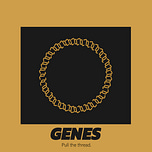


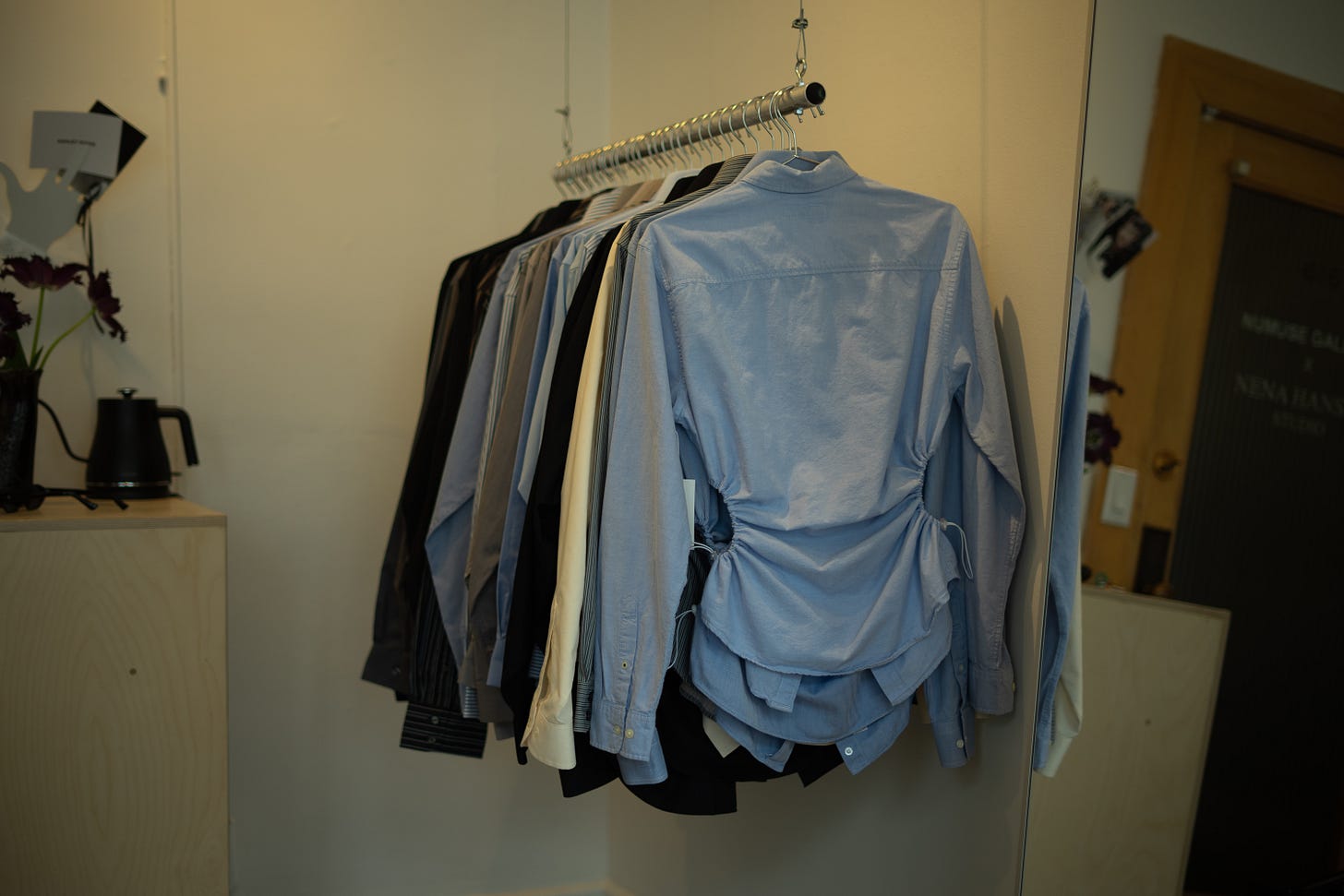
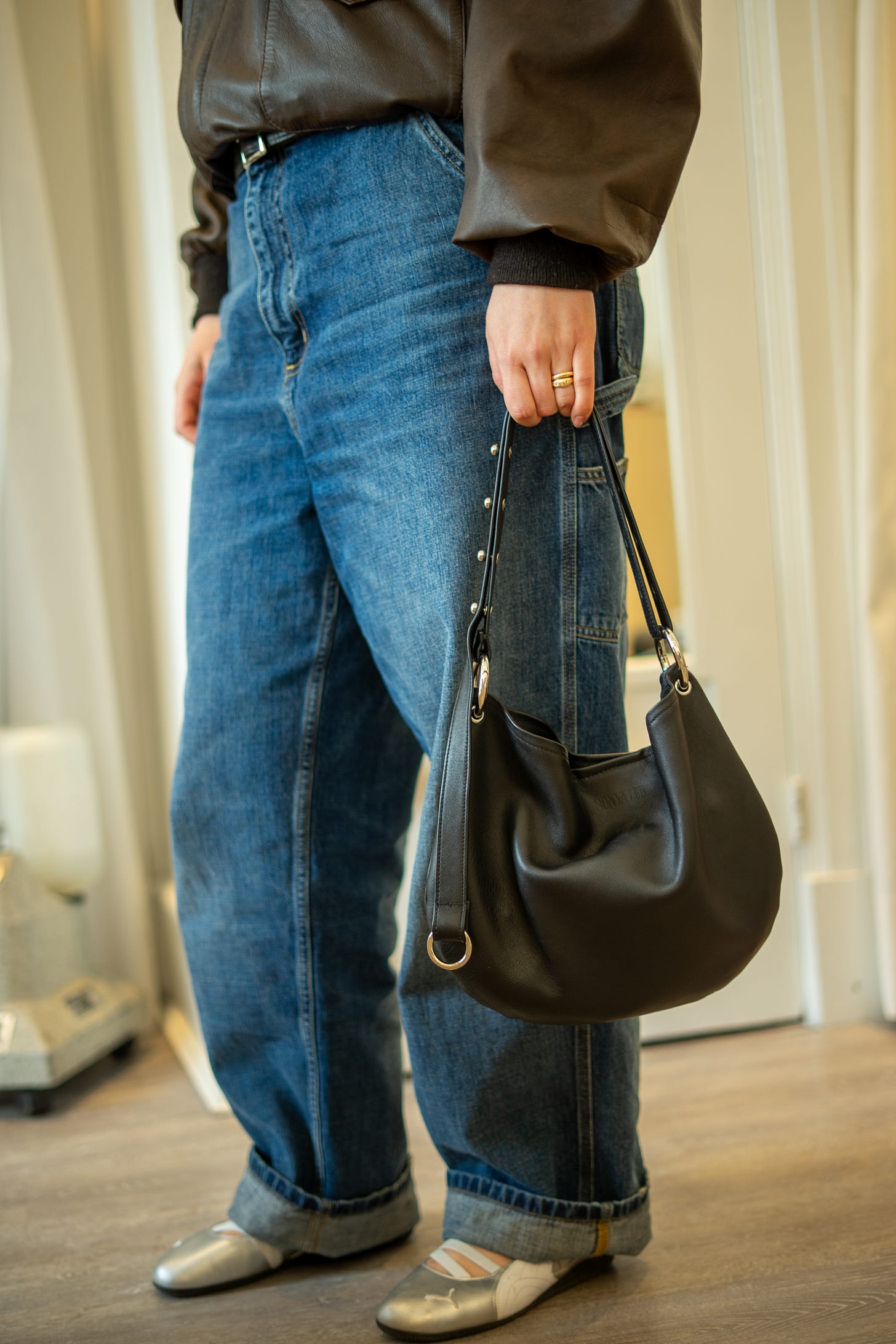
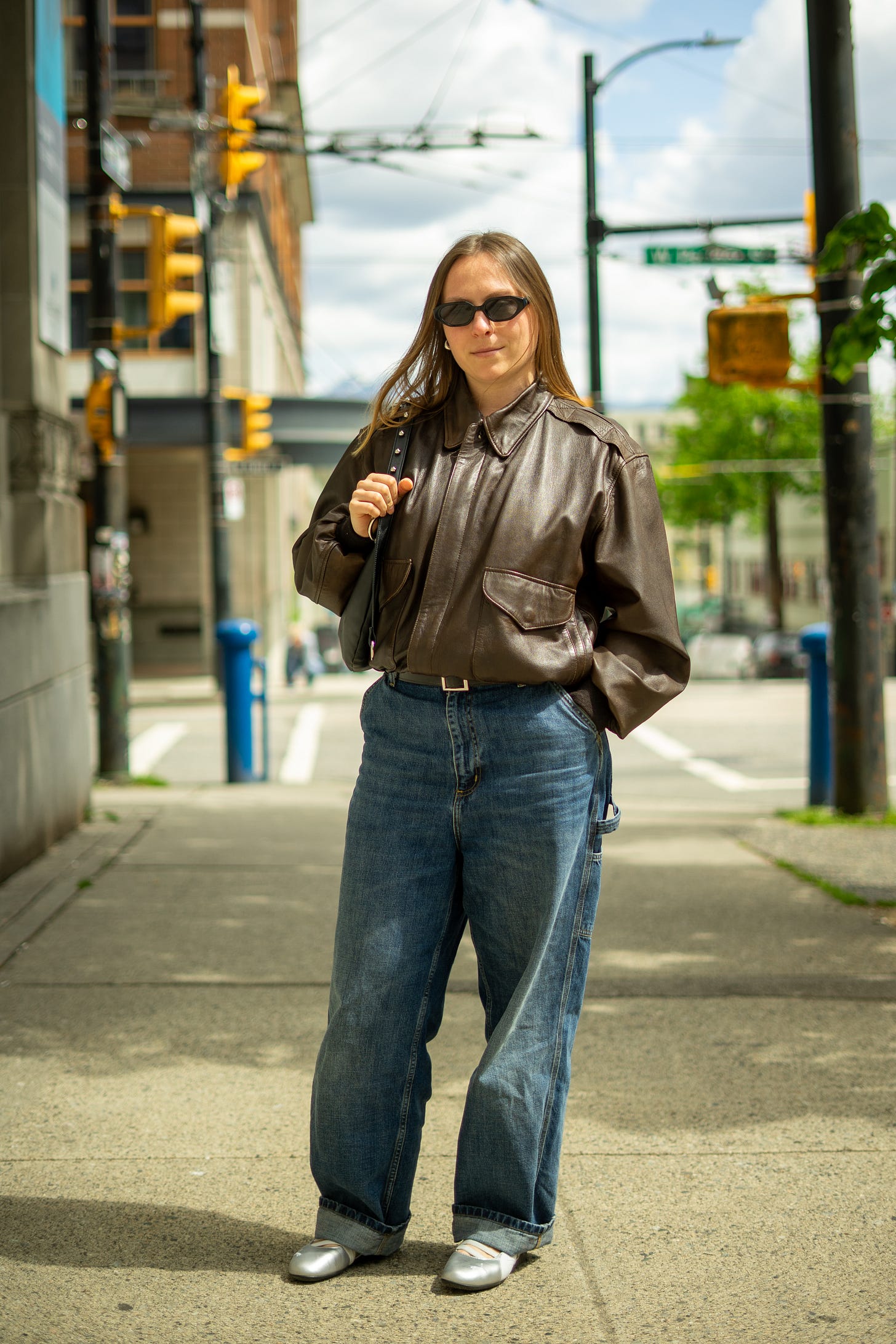
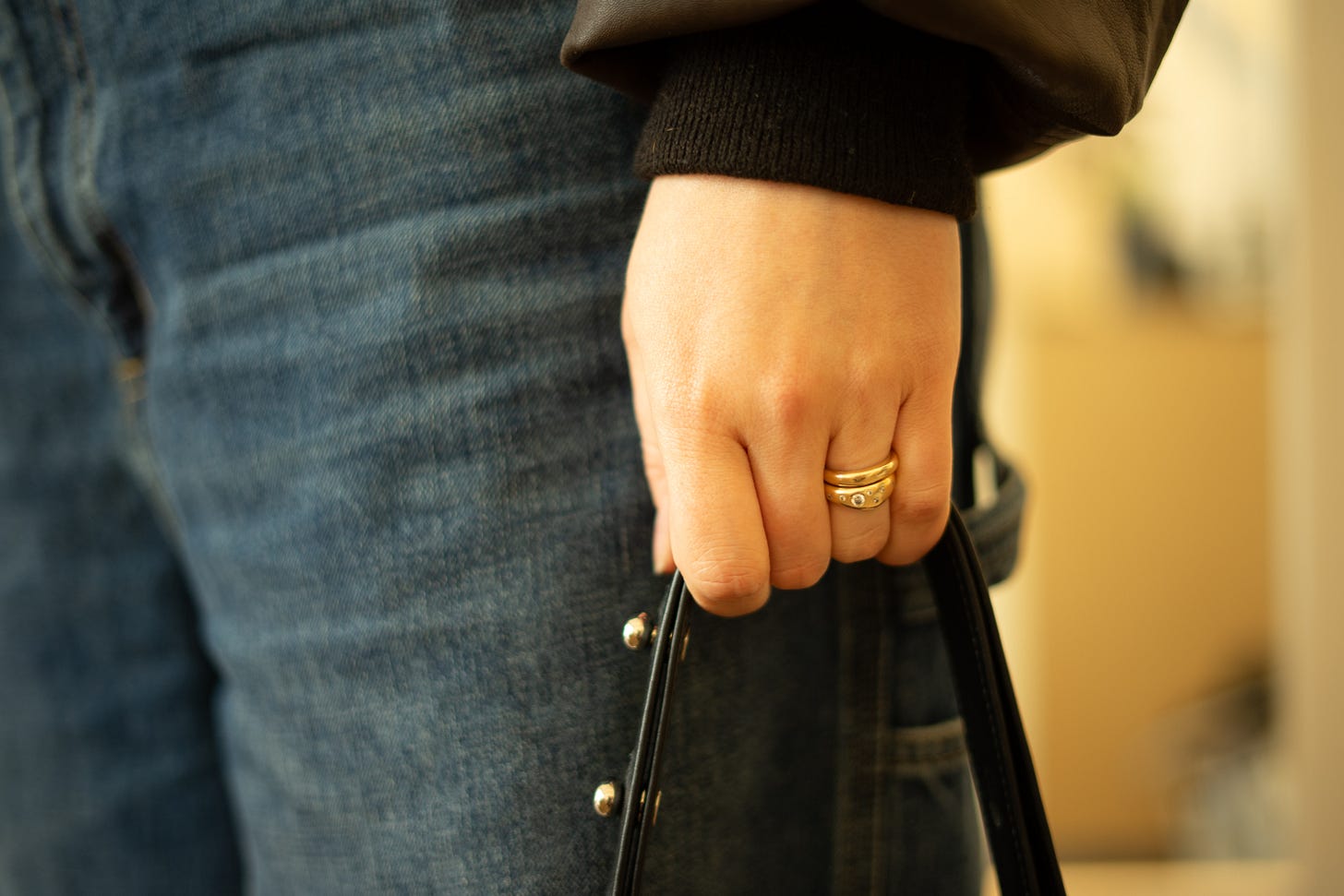
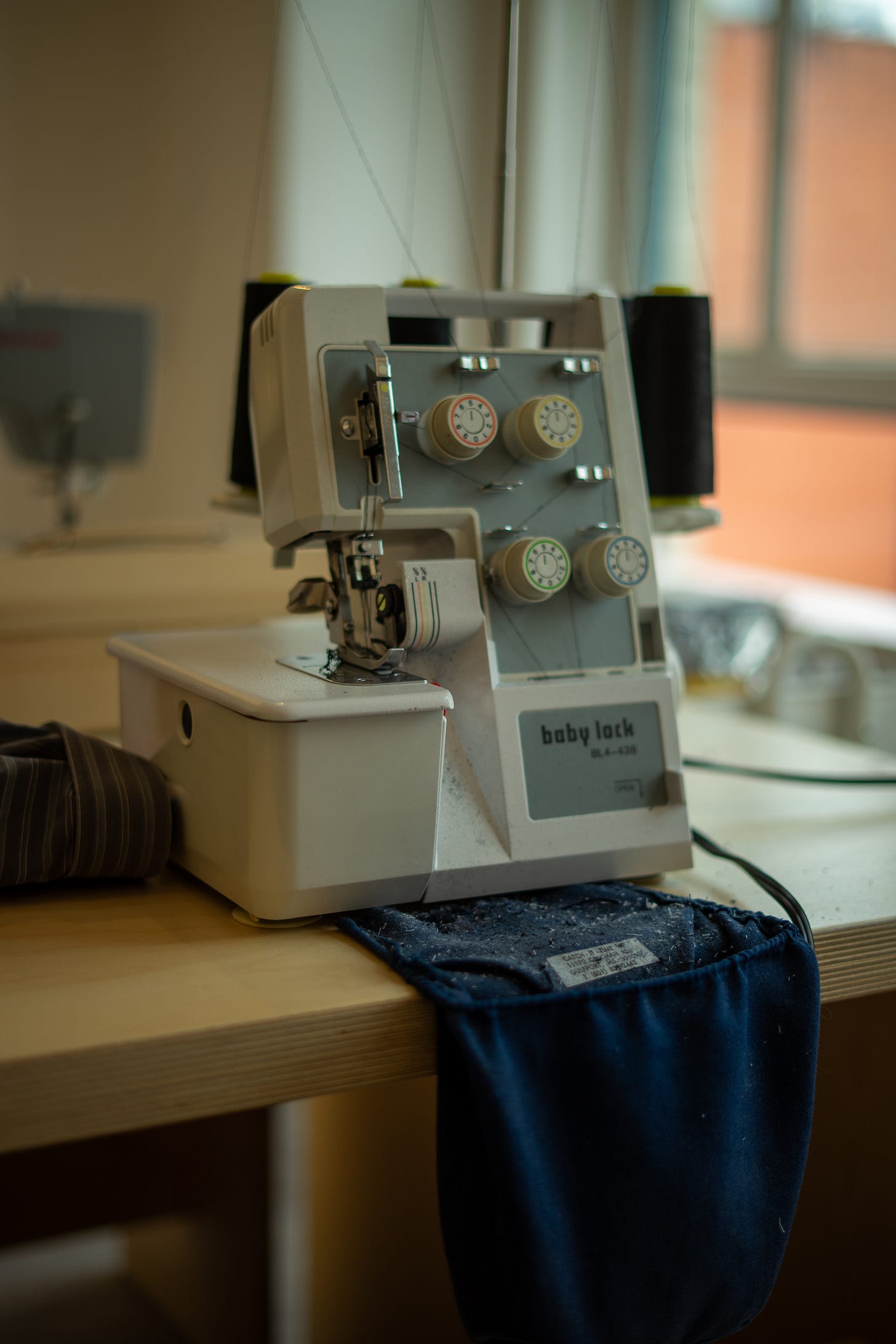
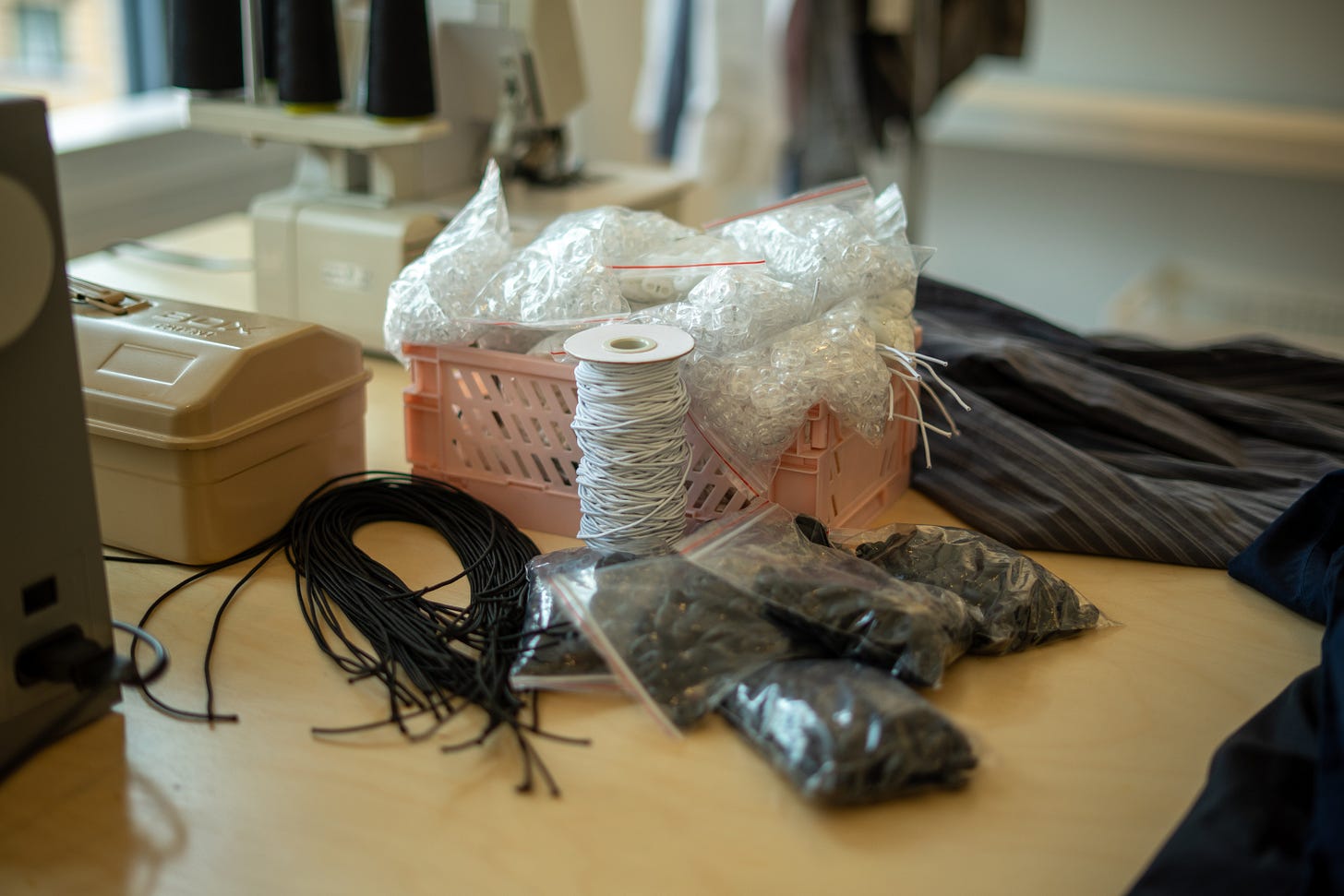


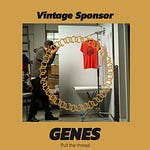
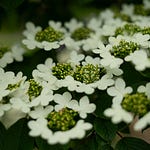
Share this post